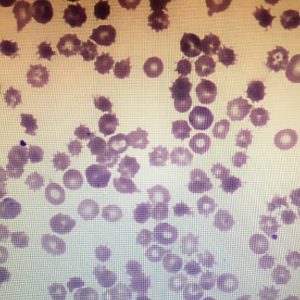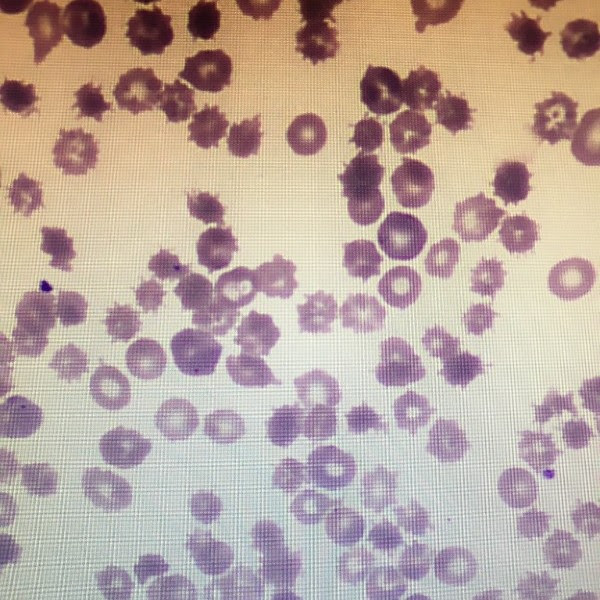Figure 1 Quiz of the Week
A 14-year-old boy is brought to the pediatrician by his mother over concerns of difficulty walking and worsening clumsiness. He reports a gradual loss of night vision, and a long history of chronic diarrhea which is pale and foul-smelling. Examination reveals an ataxic gait, and loss of deep tendon reflexes. Bilateral retinitis pigmentosa is noted on fundoscopy and a peripheral blood smear reveals the findings seen here.

Image credit: @bkehmsen.
Answer: Low total cholesterol level
This patient’s presentation and clinical findings are suggestive of abetalipoproteinemia, a form of neuroacanthocytosis. The condition, also known as Bassen-Kornzweig disease, is an autosomal recessive disorder characterized by neurologic impairment and the presence of acanthocytes (spiculated red blood cells) on a peripheral blood smear. Other notable laboratory findings include a low total cholesterol level, with an absence of beta-lipoproteins on electrophoresis. The resultant inability to absorb and transport vitamin E causes the neurologic manifestations associated with the disease.
Read more and join the discussion now at Figure 1!
Explore cases, quiz yourself, and solve medical mysteries along with thousands of other medical professionals around the world on Figure 1, the free app where doctors expand their clinical knowledge.

